EAF-Nansen Programme reports
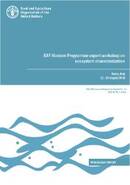
As part of the EAF-Nansen Programme activities, a workshop was organized on ecosystem characterization at the FAO Headquarters in Rome from 21 to 23 August 2018. The workshop aimed at identifying relevant ecosystem characterization approaches for data limited areas, defining best-practice methods for ecosystem characterization in data limited regions and how these should be applied, suggesting how this knowledge can feed into decision-making at tactical and strategic levels, defining how uncertainty in the methods can be taken into account and communicated, and understanding existing challenges and ongoing efforts in targeted regions that may be of relevance to ecosystem characterization. The expected outputs of the workshop were a report describing best methods/approaches for ecosystem characterizations in data-limited regions and an action plan for future case studies in two regions.
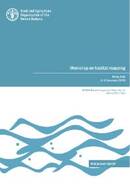
This is the report of the workshop on habitat mapping held as part of the activities under the implementation of the Science Plan of the EAF-Nansen Programme “Supporting the application of the Ecosystem Approach to Fisheries management considering climate and pollution impacts”. The workshop was held at the Hotel Abitart in Rome, Italy from 4 to 6 December 2018, with the main objectives of providing an overview of habitat mapping in the context of the EAF-Nansen Programme, reviewing and learning from past mapping experiences and modelling approaches and tools, and developing ‘best practice guidelines’ for exploratory habitat mapping and follow-up analyses in data poor waters.
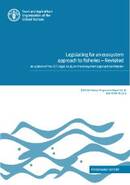
The present work was prepared with a view to provide current information on how the EAF is being implemented through national legal frameworks of selected countries in Africa. It revisits a previous legal study prepared by Anniken Skonhoft and published by FAO in 2011. A decade later, based on the scope of that study, the present work provides updated data and contributes to the knowledge on the current global and regional legal frameworks for an EAF, which are vital for EAF implementation purposes. This update also re-analysed certain countries’ national legislation and their evolution with respect to capturing the EAF requirements. Ultimately, the present work supports the legal implementation of an EAF for a holistic, integrated and innovative way of managing fisheries that promotes the participation of all relevant stakeholders and the use of best available knowledge for decision making, whilst balancing the human dimensions with the care for the environment, habitats, ecosystems and biodiversity related with fishery resources on which they depend.
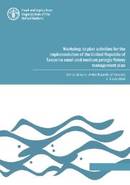
Under the EAF-Nansen Programme (Supporting the application of the Ecosystem Approach to Fisheries management considering climate and pollution impacts), a national workshop was organized at the premises of the FAO Representation in Dar es Salaam, the United Republic of Tanzania, from 3 to 5 July 2018. The objective of the workshop was to discuss follow-up actions for the implementation of the United Republic of Tanzania small and medium pelagic fisheries management plan (AFMP).
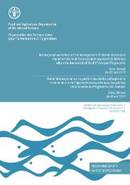
An interregional workshop on the management of shared stocks and implementation of an ecosystem approach to fisheries within the framework of the EAF-Nansen Programme was held in Dakar, Senegal from 24 to 26 April 2018. The objective of the workshop was to examine with the representatives of partner institutions and principal initiatives the current situation and related activities pertaining to shared stocks by identifying the needs and opportunities to support the management of fisheries exploiting shared stocks within the framework of the EAF-Nansen Programme.
Un atelier interrégional sur la gestion des stocks partagés et la mise en œuvre de l'approche écosystémique des pêches dans le cadre du Programme EAF-Nansen s’est tenu à Dakar, Sénégal du 24 au 26 avril 2018. Les objectifs de l’atelier étaient d’examiner avec les représentants des institutions et principales initiatives partenaires la situation actuelle et les activités connexes relatives aux stocks partagés en identifiant les besoins et d’identifier les opportunités d’appui à la gestion des pêcheries qui exploitent les stocks partagés dans le cadre du Programme EAF-Nansen.
